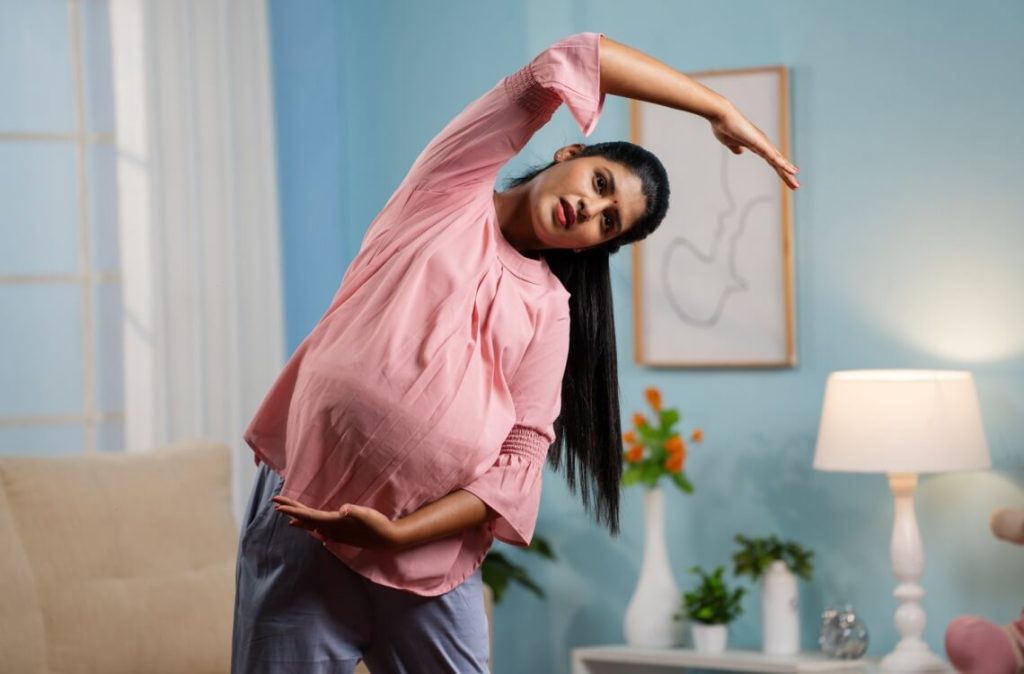Fast forward a few years later, I finally got the opportunity to look into what those painful few moments were with Pharmacist Nazatul Amira Hamzah from Primabumi Sdn Bhd.
This get together with an expert aims to empower expecting mothers by sharing effective strategies to manage common discomforts during pregnancy, helping them confidently navigate their journey to delivery day.
Nazatul is a qualified pharmacist with 10 years of experience in pharmacy practice involving both hospital and community settings.
She currently holds the position of Pharmacist and Key Account Manager at a renowned pharmaceutical company in Kuala Lumpur.
What are muscle cramps?
Muscle cramps are sudden, involuntary contractions or spasms of one or more muscles.
It typically causes intense pain and occurs mostly in the legs – particularly the calves.
These painful episodes lasting from several seconds to a few minutes can be especially disruptive during pregnancy.
Are muscle cramps in pregnancy common?
Do not worry, mummies; muscle cramps are common during pregnancy.
Additionally, the extra weight from the baby strains leg muscles, making them more likely to cramp.
What causes these muscle cramps during pregnancy?
Common factors for muscle cramps during pregnancy include a lack of certain nutrients, particularly magnesium, calcium and potassium.
The increased weight and pressure on muscles, along with hormonal changes and altered blood circulation, also contribute to the occurrence of cramps.
Stress, dehydration, over exercising, and being inactive or staying in one position for too long can further worsen these muscle cramps.
Which parts of the body are most prone to muscle cramps?
Due to the strain from the baby weight, cramps typically occur on the calf muscles.
However, you may also get cramps in your abdomen, back, thighs, and feet.
Are there any medications for muscle cramps?
There is no one medication to treat muscle cramps during pregnancy.
Your doctor might suggest one or more of the following approaches instead:
- Consume foods that are rich in magnesium such as cereals, green leafy vegetables, legumes, soybeans, nuts, dried fruit, and seafood.
- Get your doctor’s recommendation on oral magnesium supplements.
- Try warm Epsom salt baths. This method is a natural remedy that may ease muscle cramps.
- Apply magnesium oil directly on the cramped areas to relieve the pain. Follow the instructions stated on the product label or as advised by your doctor.
I often get muscle cramps doing my daily activities with my older kids. How do I manage these occurrences?
Here are some simple steps to manage your cramps when they occur:
- Start by ceasing all activities.
- Stretch the cramped muscle by contracting the opposing muscle.
- For leg cramps, sit on the floor and extend your leg straight out in front of you. Slowly pull your foot back toward your body.
- For thigh cramps, tighten your front thigh muscles and raise your leg towards your head.
- For calf cramps, stand up and shift your weight onto the cramped leg. Gently flex your knees and pull your toes up towards your nose.
- Elevate the affected body part until the pain diminishes.
- If possible, take a warm bath or apply a heating pad or towel to the cramped muscle to help relax it.
Additionally, when travelling, it’s a good idea to bring along a portable heating pad to help alleviate any muscle cramps you may experience.
How do I prevent muscle cramps during pregnancy?
To reduce the risk of muscle cramps during pregnancy, consider these steps:
- Take a warm bath and stretch your legs before bedtime.
- Avoid prolonged sitting or standing.
- Stay well-hydrated by drinking plenty of fluids throughout the day.
- Maintain a healthy and balanced diet.
- If advised by your doctor, incorporate regular low-impact exercises into your routine.
Wrapping Up: Embrace the Journey to Motherhood
Hey mummies, remember, if you’re experiencing those uncomfortable pregnancy cramps, don’t worry – you’re not alone!
With the right tips and tricks, you can manage and even prevent them effectively.
Stay hydrated, eat a balanced diet, and enjoy some light exercise.
Most importantly, listen to your body and reach out for medical advice whenever you need it.
Before you know it, you’ll be welcoming your precious bundle of joy!
Source: Nazatul Amira Hamzah, Pharmacist at Primabumi Sdn Bhd
Disclaimer: The information provided in this article is for informational purposes only and should not be considered as medical advice from Motherhood. For any health-related concerns, it is advisable to consult with a qualified healthcare professional or medical practitioner.
For more insightful stories and fun recipes, stay tuned to Motherhood Story!
